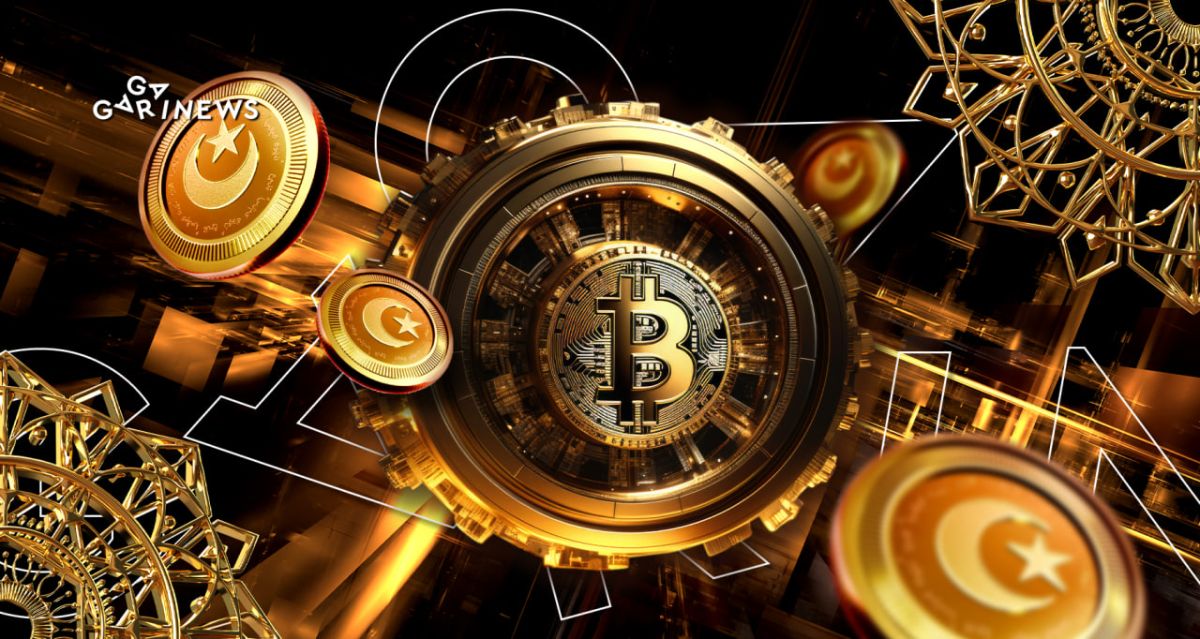Cryptocurrency and Shariah Law: Navigating the Intricacies

Exploring the nuances of digital currency trading in Islamic countries and the notion of a Shariah-compliant cryptocurrency.
On this page
Islamic law is anchored by three fundamental rules: the exclusive authority to issue currency lies with the state; currency should possess a tangible form; and speculation or investing in high-risk ventures is forbidden. Considering that cryptocurrencies don't align with these principles, it would be easy to deduce they're off-limits in Muslim regions.
However, reality tells a different story.
Major crypto exchanges are gaining ground in UAE market. Turkey witnesses BTC property transactions. Surprisingly, even the Maldives, rooted in Islam, have embraced cryptocurrencies.
Evidently, where there's a will, there's a way.
But what's the driving force behind this trend?
Let's delve into some theory
Muslims follow Islamic law, also known as Fiqh or Shariah, which regulates every aspect of life, from familial relationships and business dealings to societal conduct and one's duties to God. Within this doctrine, several principal concepts act as the foundation for evaluating any action, item, or situation.
1. Halal. This term refers to anything that's permissible and aligns with the standards of Shariah. It doesn't merely pertain to the preparation of food, as is commonly thought. A person's actions or even their attire can be classified as either halal or not.
2. Haram. This term captures everything that goes against the teachings of the Quran. For instance, making money from lending, participating in gambling, or investing in unreliable ventures are all deemed haram.
3. Gharar. This encapsulates the notion of vagueness or uncertainty that doesn't assure a predicted outcome. While gharar is seen as risky, it's not explicitly punishable because it's hard to define. Investing in highly volatile assets, like Bitcoin, is seen as embodying gharar and is therefore viewed with skepticism.
4. Maisir. This signifies a heightened level of risk. Any trading transaction that lacks mutual guarantees is likened to gambling, which is outrightly prohibited.
Moreover, it's vital to understand what is considered a valid form of currency within Islam.
For money to be deemed valid, it needs to:
- Be tangible and material.
- Hold a consistent value.
- Be scarce.
- Have an externally verified worth.
- Receive the endorsement of the state.
Considering these guidelines, some Muslim nations have strictly prohibited the use of cryptocurrency, holding violators criminally liable. In contrast, others are actively constructing crypto-centric infrastructures and organizing global forums for traders.
The difference in these stances can often be traced back to the interpretation of Muamalat (civil law). This principle essentially dictates: “Everything which is not forbidden is allowed.” More pointedly, this disparity arises from vested financial interests favoring certain interpretations that align with the Islamic business world.
From Gharar to Halal
It's almost certain to say that cryptocurrency will not be recognized as a legal tender in Islamic countries.
Their decentralized nature negates the possibility of a state audit, and their volatility does not provide the stable value necessary for something to be considered halal.
Arguably, one might find it easier to advocate for camel hides as a valid payment method over Bitcoin, given that the former has a tangible existence and a clear reference to its perceived value, unlike BTC.
In this context, the only plausible version of Muslim digital currency would be a state-backed cryptocurrency or stablecoins pegged to gold. This is precisely why the UAE Central Bank announced in March that they are prepared to launch a regulated digital currency, emCash, a project that the country's top financial experts have been developing for years.
But what about the numerous exchanges, you might ask?
The answer is intriguingly simple! A novel approach to counteract the issue of volatility is by pegging the value of one Ethereum (ETH) not against the dollar, but to one ETH itself!
Consider this: if you possessed one ETH yesterday valued at $1800, and today you still hold that ETH, its current value (even if reduced to $1500) doesn’t diminish the fact that it remains one ETH. You haven’t actually incurred a loss, hence your investment is deemed secure. If its value surges to $1900, it's even more commendable in the halal context, as you've augmented your assets without detriment to anyone. What could resonate more with the tenets of the Quran than elevating personal wealth without adversely impacting the broader community?
An astute intellectual interpretation has allowed for the exclusion of potential “maisir” (gambling) during stock exchange activities and overlooks the risk of “gharar” (extreme uncertainty) in digital asset investments. In times of financial crises, Sharia law permits investments in tangible assets like gold and shares of stable companies. If Bitcoin is viewed as digital gold, then investing in it becomes permissible, thus removing the heightened risk component.
Moreover, regulatory bodies in Islamic countries have stringent guidelines for exchanges: customers must be fully informed of potential losses. In these regions, clients must sign such disclosure agreements.
On the topic of the prohibition of lending, especially margin trading, Matthew Martin, the founder of the Indonesian platform Blossom Finance, gave a compelling insight. He said, “Conventional banks operate using the principle of fractional reserve, which is prohibited in Islam. Bitcoin is more halal than any currency in wide circulation today.” Martin suggests that if even state-backed banks essentially function with practices akin to usury, then cryptocurrencies can't be classified as “haram” (forbidden).
It's evident that such a flexible interpretation of the Quran is influenced by the significant financial interests of Islamic entrepreneurs. However, the silver lining is that all the formal tenets laid down by the custodians of Islamic law are adhered to.
Additionally, on various exchanges, there has been an introduction of “halal” digital assets. For example, the ISLM token, intrinsic to the Haqq network, is conceptualized for smooth transactions, promoting innovation, and philanthropy to benefit the entire Muslim community.
The content on The Coinomist is for informational purposes only and should not be interpreted as financial advice. While we strive to provide accurate and up-to-date information, we do not guarantee the accuracy, completeness, or reliability of any content. Neither we accept liability for any errors or omissions in the information provided or for any financial losses incurred as a result of relying on this information. Actions based on this content are at your own risk. Always do your own research and consult a professional. See our Terms, Privacy Policy, and Disclaimers for more details.

























